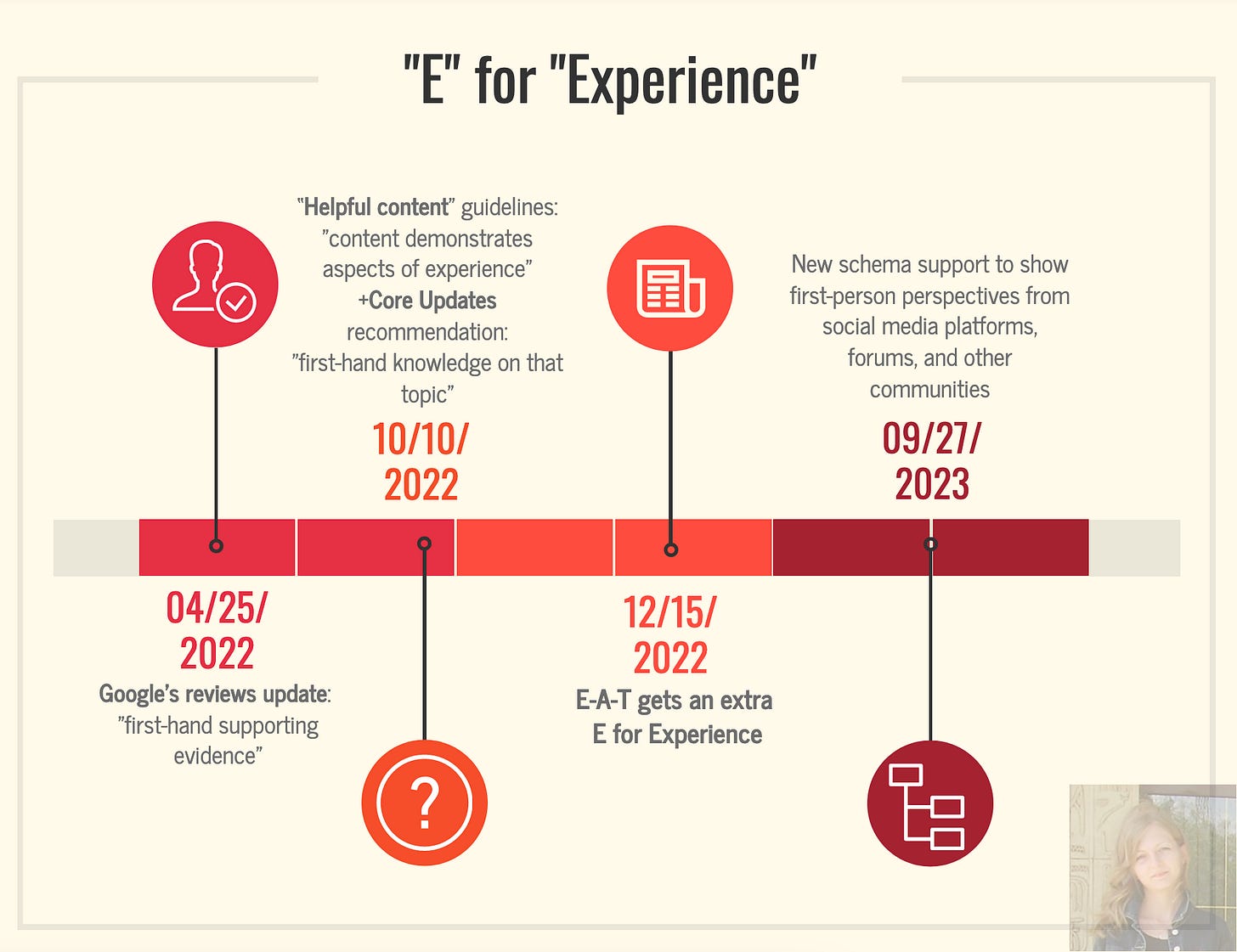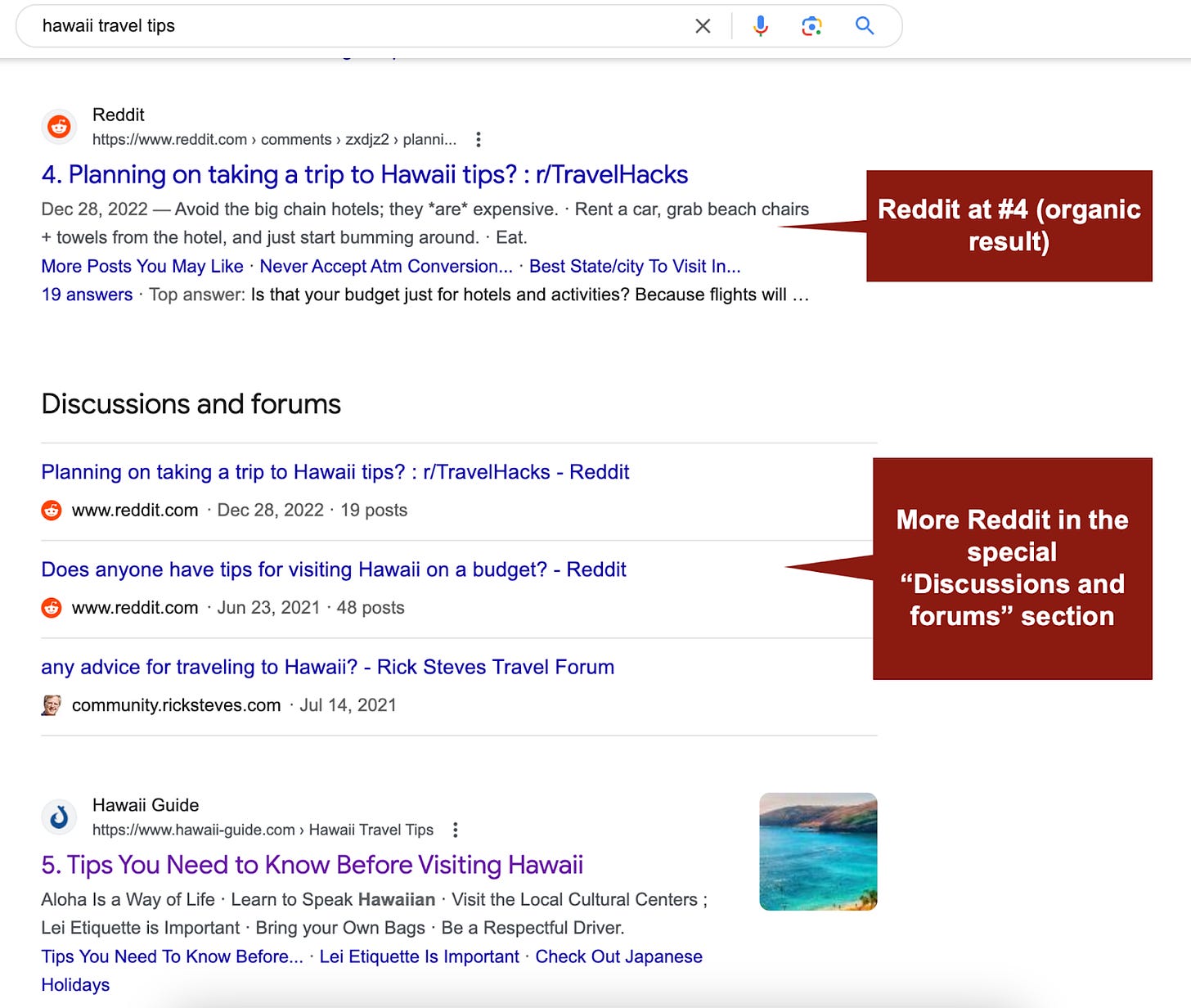“E” in EEAT & SEO: Google vs AI-Generated Content (What Should WE Do?)
How to adjust your SEO strategy to meet this extra “E” (for experience) requirement?
Google has been actively promoting the concept of the “first-hand” experience for many months now.
The trend has become even hotter this year as Google is facing the alarming threat of AI-generated content flooding its index.
So how to adjust your SEO strategy to meet this extra “E” (for experience) requirement?
First, the timeline (let me know if I missed anything):
04/25/2022: Google’s reviews update has finished rolling out and the official review guidelines emphasize the importance of first-hand experience: “When recommending something as the best overall or the best for a certain purpose, include why you consider it the best, with first-hand supporting evidence”.
10/10/2022: Google replaces its Webmaster Guidelines with “Helpful content” guidelines that include “expertise”: “After identifying relevant content, our systems aim to prioritize those that seem most helpful. To do this, they identify a mix of factors that can help determine which content demonstrates aspects of experience, expertise, authoritativeness, and trustworthiness, or what we call E-E-A-T. ”
About the same time, Google also published an official explanation of their Core Updates that also includes a touch of the “E” in it “There may be other pages that are doing a better job of helping the searcher because they have first-hand knowledge on that topic”
12/15/2022: E-A-T gets an extra E for Experience in Google’s Quality Rating Guidelines: “Does content … demonstrate that it was produced with some degree of experience, such as with actual use of a product, having actually visited a place or communicating what a person experienced?”
09/27/2023: Finally, the most recent one: Google introduces new in structured data: discussion forum and profile page markup: “This markup works with Google Search features that are designed to show first-person perspectives from social media platforms, forums, and other communities”
To add to this, we have also seen Google adding the “Discussions and forums” section to highlight those “first-hand perspectives” and “hidden gems”:
So it is pretty obvious that Google is serious about this.
What should we do?
Well, obviously, we need to highlight the “first-hand experience” whenever we can. Here are a few ideas:
First things first: Establish your topical authority
If you allow contributors on your site, include the “first-hand experience” requirement in your writing guidelines. I have seen a few great travel blogs that require things like “pictures that were taken by the contributor”, insider travel tips that you didn’t find anywhere until you went there, etc.
Create a detailed About page and author bios
Include detailed screenshots, videos, pictures - any proof that you actually used a product or a tactic you are writing about
Include legit social proof (reviews, testimonials) linking to a source (e.g. TrustPilot) and/or a person who left it.
For ecommerce sites, encourage your customers to upload pictures of them using your product, pull pictures from Instagram/videos from Youtube/TikTok of them using your product (yes, influencer outreach and collaboration), etc.
If you have an affiliate program, encourage your affiliates to write content that includes their personal experience with your product.
Start a branded subreddit! More on Reddit-driven tactics here.
Overall, we don’t quite know how Google automatically detects first-hand experience but I am sure they have had enough time to figure that out. So instead of trying to “fake” it, try and make it!




Those are great recommendations, Ann. Thanks for the insights. Regarding setting up a branded subreddit, that's a new idea for me. I'll read you post about it and may have questions for you. Apologies in advance! LOL